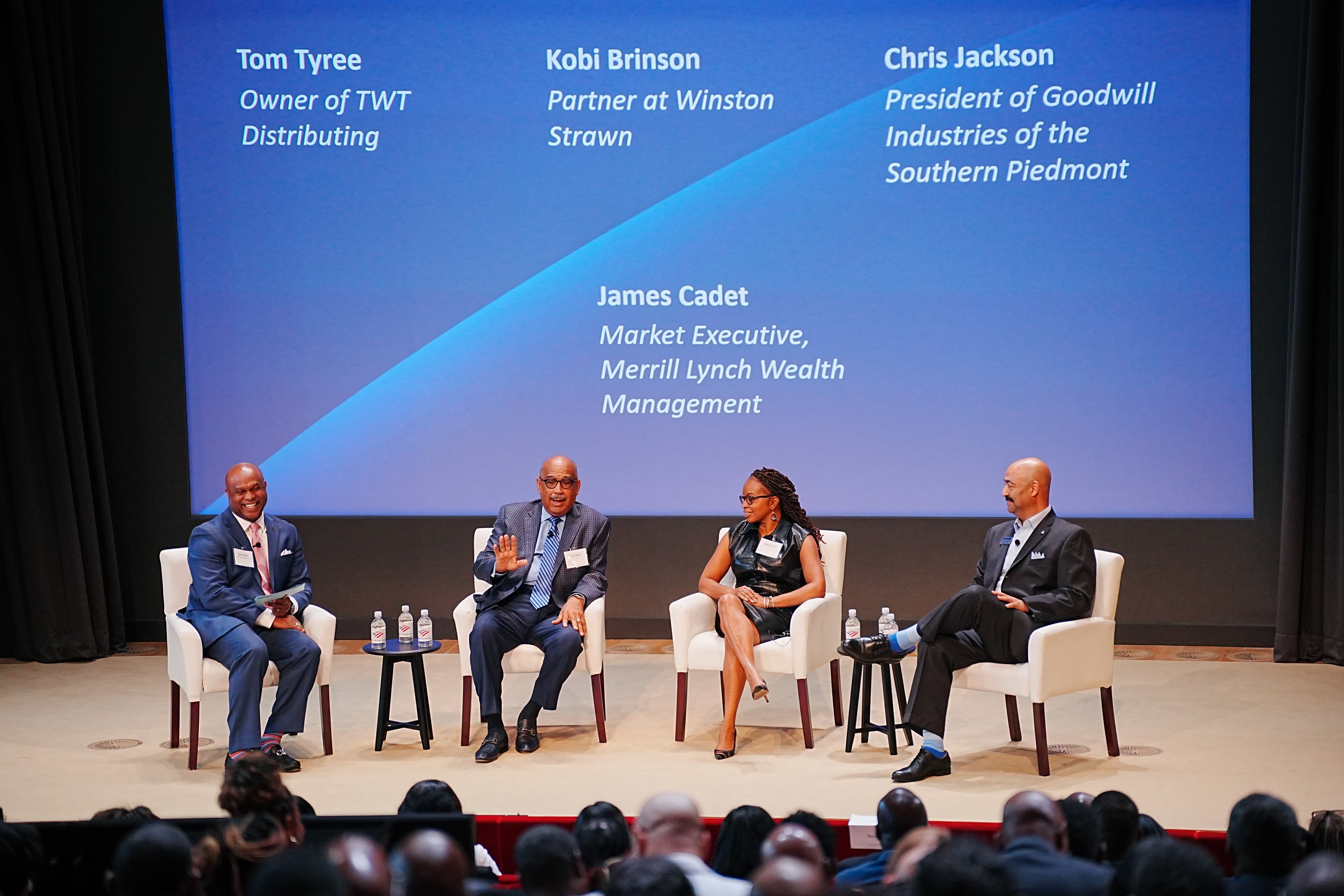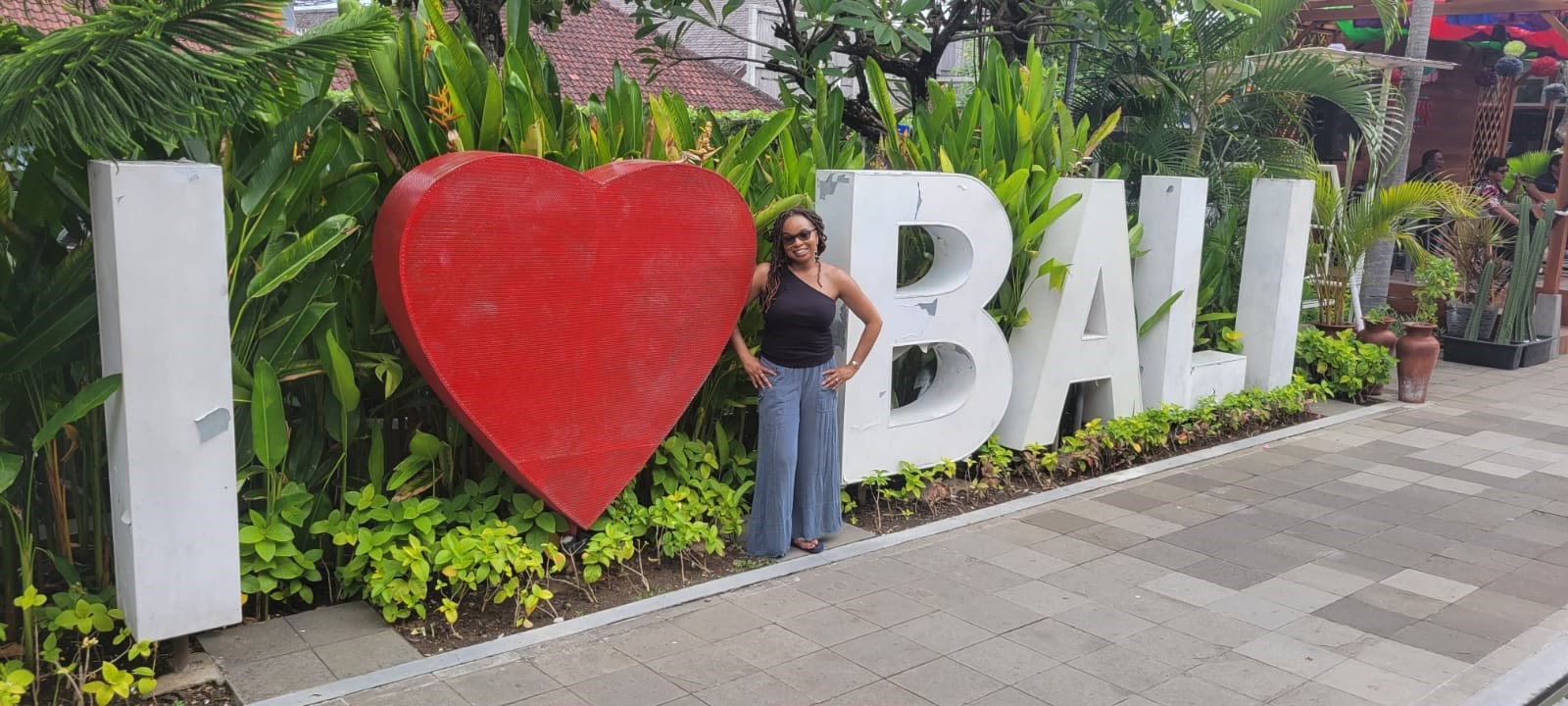Kobi Kennedy Brinson, a Bank of America alum since 2014, is co-chair of Winston & Strawn LLP’s Financial Services Industry Group and is a litigation and regulatory enforcement partner in the firm’s Charlotte office.
Prior to joining Winston, she was in-house counsel at the bank, where she coordinated responses to consumer regulatory enforcement actions from prudential and other regulators, including the Consumer Financial Protection Bureau (CFPB), Department of Justice, and state Attorneys General.
Kobi, a Harvard Law School graduate, is an active Bank of America alum who recently participated in the bank’s 2023 Black Executive Leadership Council Summit panel on Driving Business Integration for Clients. The Alumni Network office recently spoke with Kobi about her ongoing connections with Bank of America and what it means to her both personally and professionally.
Tell us about your career at Bank of America.
I was with the company from 2010-2014, and I was senior vice president and assistant general counsel in the Litigation Group. I specialized in consumer lending and consumer deposit issues. My clients were mortgage, auto, credit card, but I also had depository issues and fees. My role was both litigation and regulatory enforcement.
So, when the CFPB started in 2010, there was no one who did regulatory consumer because it wasn’t a thing before that time. Our team developed the in-house infrastructure to respond to the CFPB. And I was a first guard at the bank to specialize in consumer regulatory issues. I was the bridge between consumer defense litigation and consumer regulatory enforcement. That’s how I ended up doing both.
I also supported a few of the enterprise support functions for things like commercial, environmental and contract disputes related to branches. In addition, I handled corporate tax issues during my time with the company.
How did your prior experience as in-house counsel with Bank of America prepare you for your current role as outside counsel with the company?
My prior experience as in-house counsel drove home for me what Legal needs to provide to the lines of business — and that is a line of sight that most outside lawyers don’t have. In addition to defending the bank from a legal perspective, my goal is to support the line of business and corporation (enterprise wide) in a way that’s not just compliant but is excellent. So, it’s about us protecting the bank within the law, but as importantly living up to the standards of the company.
My role as in-house counsel was to 1) Make sure we are doing that legally; 2) Make sure we can defend the company; and 3) Help the line of business deliver best-in-class service. So, if I see something in litigation or in the regulatory enforcement environment that I think would benefit the line of business — in terms of changing something — then that was my job. Not only was I defending the bank, but I was helping to improve the bank. And that’s the difference between being former in-house counsel versus outside counsel. Having been there gives me a more complete understanding (as outside counsel) of how the bank operates, and not making assumptions about what I think goes on.
In addition, my experience as a public defender really helped me as in-house counsel and impacted how I think as outside counsel because so many of the cases I handled were consumer driven. When you’re a public defender, you deal with real people with real problems. So, I have a heightened ability to look at the bank’s customers — even when they are suing the bank — (and consider) where is this person in their life that is affecting their view of the bank and how the bank treated them?
Is there a favorite memory or impactful moments of note from your career at Bank of America?
One thing that comes to mind is when I was considering my next move professionally, and I was feeling a little put out and started to look like I felt. And in a brief interaction on the elevator with a senior executive, he noticed I wasn’t my usual self. He asked what was wrong and recommended I get myself together, figure out where I wanted to be and dress for the role I wanted and not the one I wanted to leave. It sounds simple, but it kind of changed my life because it puts me in the mindset of what’s forward and not what’s holding me back. And that wasn’t just about Bank of America, it was about life. That moment gave me wings. It also showed the type of leaders and leadership that are pervasive at Bank of America.
Experiences like this instilled in me a commitment and loyalty to Bank of America. I’m someone who sees the company as more than the sum of its parts. I see all of it, and I appreciate it. That’s why I’m always proud to say I’m a Bank of America alum.
What else have you been up to (i.e., personal passions, community) since leaving the bank?
Travel has become my passion as a relatively new empty nester. This past year I traveled to Bali and Singapore. I’m going to Greece next, and I will spend two weeks at the Olympics in Paris.
Also, I continue to embrace my love for the arts — primarily collecting pieces from African American living artists from North Carolina and attending performing arts events.
What are your thoughts about being a part of the Alumni Network or message to fellow alum?
My truth is I’ve never been disconnected from Bank of America — whether it is partnering on pro bono initiatives and diversity issues or staying connected as part of the chat group I have with former BofA Legal colleagues. And during COVID, we played virtual spades together, which was great fun! That connection kept me sane during the pandemic.
The reason I’ve never been disconnected is because people at Bank of America are first-in-class professionals, but most of all, first-in-class people. So, connecting with the Alumni Network is a privilege for me.
I’ve done a lot of things in my life, but when I see Bank of America anywhere in the world I get a rush — like I was a part of that and I’m still a part of it. It’s a matter of pride and appreciating the friendships and just the quality of humanity that Bank of America draws.

Black Executive Leadership Council Summit


